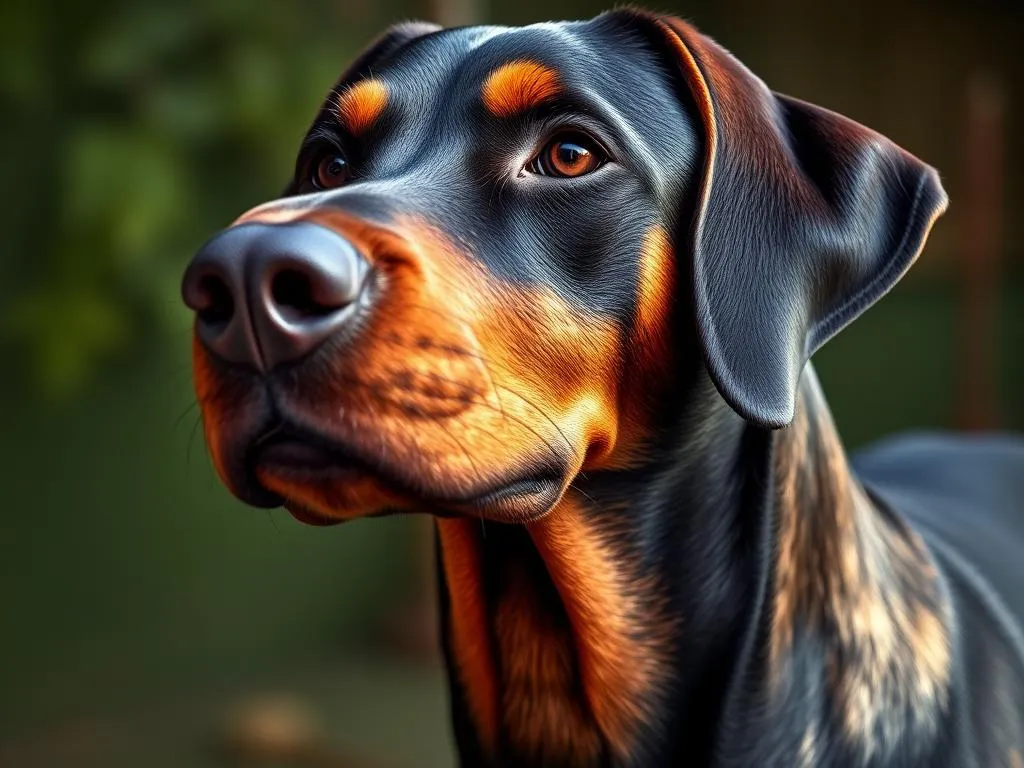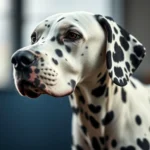
Dog odor can often be a topic of concern for pet owners. While all dogs have a distinctive scent, the intensity and nature of that smell can vary greatly among breeds. This leads to a common question: do Dobermans smell more than other dogs? To answer this, we need to dive into the science of dog odors, understand the specific characteristics of Dobermans, and compare them with other breeds.
Understanding Dog Odors
The Science of Dog Smell
Dogs possess an extraordinary sense of smell, far surpassing that of humans. While we have about 5 million scent receptors, dogs have anywhere from 220 million to 300 million, depending on the breed. This incredible olfactory ability means that dogs can detect scents at incredibly low concentrations.
Different breeds also have varying types of scent glands and oils that contribute to their unique smells. For example, some breeds have oilier skin or thicker fur, which can trap odors more than others.
Factors Influencing Dog Odor
Several factors can influence a dog’s odor, regardless of breed:
- Diet: The type of food your dog eats greatly impacts their body odor. Low-quality dog food that contains fillers can lead to a more pungent smell.
- Hygiene: Regular grooming and bathing are essential in managing odors. Dogs that are not groomed frequently will likely carry more dirt, dander, and bacteria, leading to stronger smells.
- Health: Underlying health issues, such as skin infections, allergies, or dental problems, can significantly affect a dog’s odor.
Doberman Characteristics
General Traits of Dobermans
Dobermans are known for their loyalty, intelligence, and striking appearance. Developed in Germany in the late 19th century, they were initially bred for protection and as guard dogs. They are muscular, sleek, and have a short coat that requires minimal grooming.
Their short coat is often considered a plus when it comes to odor management, as it doesn’t trap dirt and oils as longer fur might. However, they still need regular grooming to maintain healthy skin and coat.
Doberman-Specific Smell Factors
When it comes to Dobermans, their skin type and coat can influence how they smell. They have a relatively short coat, which means less fur to trap odors. However, Dobermans can be prone to certain skin conditions and allergies that may lead to a stronger smell if not managed properly.
Additionally, some Dobermans may experience a condition known as seborrhea, which can cause oily, flaky skin and contribute to unpleasant odors. Regular veterinary check-ups can help manage these issues.
Comparison With Other Breeds
Dog Breeds Known for Strong Odors
Certain breeds are notorious for their strong odors, which can be attributed to their skin type, coat, and grooming needs. Here are a few breeds commonly associated with stronger smells:
- Basset Hounds: Known for their droopy ears and loose skin, Basset Hounds tend to have a strong smell due to their oily coats and tendency to drool.
- Bulldogs: Bulldogs have numerous skin folds that can trap moisture and bacteria, leading to odor if not cleaned regularly.
- Coonhounds: These dogs have a strong scent due to their hunting background and often require frequent baths to manage odor.
These breeds typically require more intensive grooming and care to minimize their smell.
Low-Odor Breeds
On the opposite end of the spectrum, some breeds are known for having less odor. These include:
- Poodles: With their curly coats, Poodles tend to trap less dirt and moisture, resulting in a lower odor profile. Their hair also requires regular grooming, which helps keep odors at bay.
- Basenjis: Known as the “barkless dog,” Basenjis have a fine coat that is self-cleaning, making them one of the least odorous breeds.
These breeds often have grooming habits and care practices that contribute to their minimal odors.
Do Dobermans Smell More than Other Dogs?
Expert Opinions
Veterinarians and dog trainers generally agree that Dobermans do not inherently smell more than other dog breeds. Their short coat and low-shedding nature contribute to less odor, provided they receive proper care.
Experts suggest that regular grooming, including bathing and brushing, can help keep Dobermans smelling fresh. Moreover, any odor that does arise is often linked to diet, health issues, or hygiene practices rather than the breed itself.
Anecdotal Evidence
Personal testimonials from Doberman owners often vary. Many report that their Dobermans do not have a strong odor, especially when compared to breeds like Basset Hounds or Bulldogs. Owners who maintain regular grooming routines and a healthy diet tend to experience fewer odor issues.
Conversely, some owners have noted that their Dobermans can develop an odor if they have underlying health issues or if they are not groomed regularly. This highlights the importance of individualized care over breed-specific assumptions.
Care Tips for Reducing Dog Odor
Grooming Practices
To keep your Doberman smelling fresh, follow these grooming practices:
- Regular Bathing: Bathe your Doberman every 4-6 weeks, or as needed. Use a dog-specific shampoo that is gentle on their skin.
- Brushing: Brush your Doberman weekly to remove loose hair and dander, which can contribute to odors.
- Ear Cleaning: Regularly check and clean your Doberman’s ears, as moisture can lead to infections and odors.
Diet and Health Maintenance
Diet plays a crucial role in managing dog odors. Here are some tips:
- Quality Dog Food: Invest in high-quality dog food that is free from fillers and artificial ingredients. Foods rich in omega fatty acids can improve skin health and reduce odor.
- Regular Vet Check-ups: Schedule routine vet visits to catch any health issues early, as conditions like allergies or infections can lead to increased odors.
Environmental Factors
Maintaining a clean living environment can also help minimize dog odors:
- Clean Living Space: Regularly wash your Doberman’s bedding, toys, and any areas they frequent in your home.
- Ventilation: Ensure your living space is well-ventilated to reduce moisture and odor buildup.
- Exercise: Provide regular exercise and mental stimulation to keep your Doberman healthy and happy, which can also reduce stress-related odors.
Conclusion
In summary, Dobermans do not generally smell more than other dogs when properly cared for. Their short coat can actually work in their favor regarding odor management. Factors such as diet, hygiene, and overall health play a crucial role in determining how much a dog smells.
While some breeds are naturally more odorous, individual care practices can greatly influence this aspect of dog ownership. Therefore, Doberman owners can enjoy their pets without the worry of excessive odors by following proper grooming and health maintenance routines.
FAQs
Do all dog breeds have a smell?
Yes, all dogs have a unique scent due to their skin, fur, and environment. However, the intensity of that smell can vary by breed, grooming habits, and health.
How often should I bathe my Doberman?
You should bathe your Doberman every 4-6 weeks, or as needed, using a gentle dog shampoo.
What health issues can cause a dog to smell?
Health issues such as skin infections, allergies, dental problems, and ear infections can significantly contribute to a dog’s odor.
Are there any specific grooming products recommended for Dobermans?
Look for dog shampoos that are specifically formulated for sensitive skin or contain natural ingredients. Regular brushes and grooming tools designed for short-haired breeds can also be beneficial.
This comprehensive exploration of whether Dobermans smell more than other dogs reveals that with the right care, they can remain fresh and odor-free. By understanding the factors involved and implementing effective care practices, Doberman owners can ensure their beloved pets stay as pleasant to be around as they are to love.









